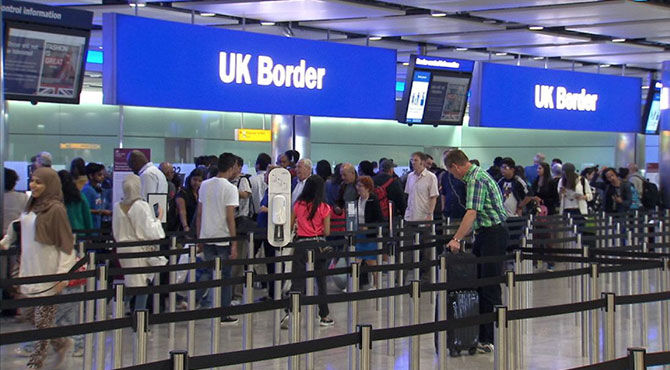Migration fall slows UK population growth
The population of the UK in the year after the EU referendum rose by its slowest rate for more than a decade, according to figures from the ONS.

 28 June 2018
28 June 2018Number of EU citizens seeking work in UK drops
Last year’s sharp decline was in marked contrast to the year to June 2016 – the month of the Brexit vote – when the annual population rise was put at 538,000, the biggest increase in almost 70 years.The ONS Migration Statistics Bulletin said, “The number of people immigrating for a definite job has remained stable but there has been a 43 per cent decrease in the number of people immigrating to look for work over the last year, especially for EU citizens.“These changes suggest that Brexit is likely to be a factor in people’s decision to move to or from the UK – but decisions to migrate are complex and other factors are also going to be influencing the figures.”Earlier this year, ONS recorded a 45 per cent decline in net migration from the other EU nations to the UK in the 12 months to last September: down to 90,000 from 165,000 the year before.Related stories:
- More London City firms prepared for EU relocations
- Businesses welcome post-Brexit plan for EU nationals
- UK “looking outside EU for financial partners”
Immigration continues to swell UK population
In the latest figures, immigration was estimated to account for 59 per cent of the population gain as opposed to 41 per cent attributed to the excess of births over deaths.Robin Maynard, director of the charity Population Matters, which campaigns for ‘sustainable’ populations, said, “This year’s reduction in rate of growth is welcome but it’s the result of circumstances, not leadership.“The government should not be a passive spectator to population growth. If we want a better quality of life and a healthy natural environment in this country, we can’t continue to treat population growth as an inevitability we have to accommodate, instead of a challenge we must and can meet – through compassionate, available means and positive action.“The government needs to have a strategy to achieve a sustainable population in the UK. It needs to put a minister in charge, identify the effective solutions, create a rational, integrated policy and implement it.”Neil Park, ONS head of population estimates unit, said, “This is the lowest annual population growth since 2004 due to a fall in net migration, fewer births and more deaths than previously seen.“The effect is most pronounced in London and other areas that have seen high levels of immigration in recent years.“Nevertheless, the population is still growing faster than at any time since the post-war ‘baby boom’ and the expansion of the EU in 2004.” Relocate’s new Global Mobility Toolkit provides free information, practical advice and support for HR, global mobility managers and global teams operating overseas.
 Access hundreds of global services and suppliers in our Online Directory
Access hundreds of global services and suppliers in our Online Directory
©2026 Re:locate magazine, published by Profile Locations, Spray Hill, Hastings Road, Lamberhurst, Kent TN3 8JB. All rights reserved. This publication (or any part thereof) may not be reproduced in any form without the prior written permission of Profile Locations. Profile Locations accepts no liability for the accuracy of the contents or any opinions expressed herein.






























